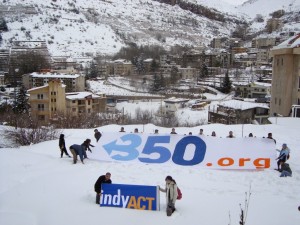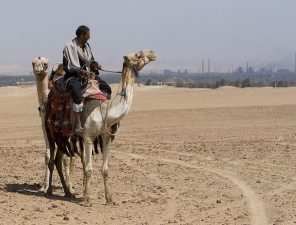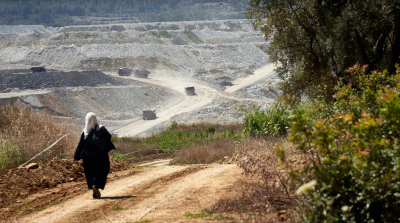
It’s easy. If you don’t want to read the whole article, here is the sum up: We need 31% more renewable energy to play it climate safe by 2030. It will cost $750 billion USD – but this can be investment stimulus people, and wind and solar can get us there. Let’s do it!
There is a meeting of the “energy” global superpowers every year in Abu Dhabi. It’s called IRENA, or the International Renewable Energy Agency. They function like a United Nations group, doing research, conducting meetings and presenting recommendations to the world.
Can we save the earth without the Arctic ice?
This year they issue a report: The share of renewables in global power should more than double by 2030 to advance the global energy transformation, achieve sustainable development goals and a pathway to climate safety. Renewable electricity should supply 57 per cent of global power by the end of the decade, up from 26 per cent today. That’s, well, up 31% and every country should step up to the plate and do their part.

Meeting the press at IRENA in Abu Dhabi
A new booklet 10 Years: Progress to Action, published for the 10th annual Assembly of IRENA, charts recent global advances and outlines the measures still needed to scale up renewables.
We need $750 billion in investment please for renewables, for the planet
The Agency’s data shows that annual renewable energy investment needs to double from around $330 USD billion today to close to $750 USD billion to deploy renewable energy at the speed required. Much of the needed investment can be met by redirecting planned fossil fuel investment.
Close to USD 10 trillion of non-renewables related energy investments are planned to 2030, risking stranded assets and increasing the likelihood of exceeding the world’s 1.5 degree carbon budget this decade.
“We have entered the decade of renewable energy action, a period in which the energy system will transform at unparalleled speed,” said IRENA Director-General Francesco La Camera. “To ensure this happens, we must urgently address the need for stronger enabling policies and a significant increase in investment over the next 10 years. Renewables hold the key to sustainable development and should be central to energy and economic planning all over the world.”
“Renewable energy solutions are affordable, readily available and deployable at scale,” continued Mr. La Camera.
Additional investments bring significant external cost savings, including minimising significant losses caused by climate change as a result of inaction. People are facing the effects of climate change in the Middle East. The conflict in Syria ongoing for more than a decade, a crisis about to hit a tipping point in Egypt for lack or water; flooding everywhere, most recently in Israel where people lost their lives.
Savings could amount to between USD 1.6 trillion and USD 3.7 trillion annually by 2030, three to seven times higher than investment costs for the energy transformation. These costs can outweigh a mass migration from North Africa and the Middle East to Europe. Because as climate effects strengthen, European countries will find it impossible to keep the gates closed, as they currently do.
Solar and wind could cover a third of world energy needs
Falling technology costs continue to strengthen the case for renewable energy. IRENA points out that solar photovoltaic costs have fallen by almost 90 per cent over the last 10 years and onshore wind turbine prices have fallen by up half in that period.
By the end of this decade, solar PV and wind costs may consistently outcompete traditional energy. The two technologies could cover over a third of global power needs.
Renewables can become a vital tool in closing the energy access gap, a key sustainable development goal. Off-grid renewables have emerged as a key solution to expand energy access and now deliver access to around 150 million people.
IRENA data shows that 60 per cent of new electricity access can be met by renewables in the next decade with stand-alone and mini-grid systems providing the means for almost half of new access.
Yalla, let’s do this. Make smarter energy decisions starting at home.



